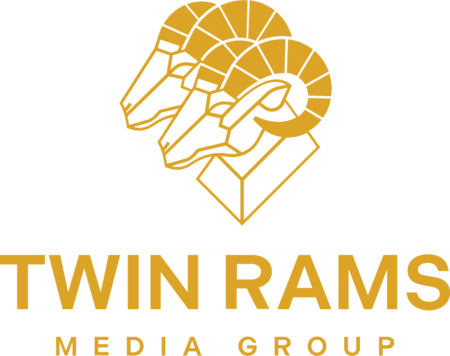PPC, or pay-per-click advertising, remains a fundamental part of digital marketing. PPC ads are a great way to reach audiences online and quickly showcase your products and services. However, PPC trends are always evolving, and new ones are always emerging. To make sure you’re maximizing your ad campaigns and forming an effective PPC strategy, you need to look out for any new PPC trends.
Why is a PPC strategy important?
PPC (pay-per-click) is an online advertising model where advertisers pay a fee each time their ad is clicked. It’s a way of buying visits to your site rather than attempting to earn those visits organically through search engine optimization (SEO) or other methods. This means having a PPC strategy, alongside organic content, can be critical. You want to be able to have an effective and optimized PPC strategy. Otherwise, it will be a waste of precious resources.
A good PPC strategy is important for several reasons:
- Immediate results: PPC campaigns can drive traffic to your website almost instantly. Unlike organic search engine optimization (SEO) or organic content marketing, which can take time to see results, PPC ads can appear at the top of search engine results pages (SERPs) as soon as you launch your campaign.
- Targeted advertising: PPC allows you to target a specific audience. This includes any demographics, locations, languages, devices, and even the time of day your ads will appear. This level of targeting ensures that your ads are seen by the most relevant audience for your business, increasing the likelihood of high-quality leads and then conversion.
- Measurable results: PPC platforms like Google Ads and Bing Ads provide detailed analytics and reporting. This allows advertisers to track the performance of ad campaigns in real-time. You will be able to see metrics such as clicks, impressions, conversions, and return on investment (ROI). This enables you to optimize your campaigns for better results.
- Controlled budget: With a good PPC strategy, you have full control over your budget. You can set daily or monthly caps on how much you’re willing to spend, and you only pay when someone clicks on your ad. This can make PPC a cost-effective advertising option, as you’re not wasting money on impressions that don’t result in clicks.
- Brand visibility: Even if users don’t click on your ads, they still see your brand name and message, increasing brand awareness and visibility. This can lead to future visits to your website, social media visibility, or conversions through other channels.
- Competitive advantage: In competitive industries, PPC can give you an edge over competitors who rely solely on organic search. By bidding on relevant keywords and crafting compelling ad copy, you can outperform competitors in the search results and attract more customers to your website.
- Flexibility and scalability: PPC campaigns are highly flexible and scalable. You can easily adjust your targeting, keywords, ad copy, and budget based on performance and business goals. Whether you want to reach a broader audience or focus on a specific niche, PPC allows you to tailor your strategy accordingly.
At the end of the day, an effective PPC strategy can drive immediate and targeted traffic to your website, increase brand visibility, and provide higher chances for leads and conversions.
What are the PPC trends that will shape 2024?
Aside from a good PPC strategy, PPC trends will most likely shape PPC advertising and determine the success of businesses and advertisers. PPC trends in 2024, for example, are a mix of new and unique challenges that present a new direction for advertisers. Businesses that are taking advantage of PPC ads need to be observant and willing to adjust their PPC strategy.
Here are some of the PPC trends that you need to look out for this year:
PPC trend #1: Automation in paid ad campaigns
Automation is becoming more and more significant in digital marketing, and this extends to advertising and PPC strategy. Automation features within platforms like Google Ads and Facebook Ads will become more sophisticated, integrating various automation features. This will allow advertisers to optimize campaigns, adjust bids, and personalize ad experiences at scale.
PPC trend #2: The use of artificial intelligence
Apart from automation, artificial intelligence (AI) will also be a big change for PPC advertisers. Generative AI has already impacted content marketing and SEO practices, which businesses can use. AI will also soon be found in PPC advertising, where advertisers can predict CTR (clickthrough rates), optimize keyword selection, utilize smart bidding, analyze customers’ behaviors, create and target ads with machine learning, and more.
PPC trend #3: The growth of video ads
With nearly 3.5 billion internet users who watch videos worldwide, video content consumption is on the rise. PPC platforms are most likely to expand their video advertising capabilities accordingly. Ad formats such as in-stream ads, bumper ads, and video discovery ads will become more prevalent. This will offer advertisers new opportunities to engage audiences and boost brand awareness.
PPC trend #4: The start of omnichannel advertising
Most PPC advertisers will also try an omnichannel approach when it comes to a PPC strategy. Omnichannel means having multiple touchpoints in commerce to provide a seamless experience for the audience. With omnichannel advertising, PPC campaigns will become more integrated with other marketing channels. This includes social media advertising, email marketing, and content marketing. Advertisers will leverage cross-channel data and insights to create cohesive, omnichannel experiences for the audience.
PPC trend #5: Optimization for voice search ads
With the increasing adoption of voice-enabled devices and voice search technology, PPC advertisers will need to optimize their campaigns for voice search queries. 50% of consumers utilize voice search every day in the United States. This may involve targeting long-tail keywords and adjusting ad copy to align with conversational search patterns mostly used in voice search.
PPC trend #6: Privacy at the center
As privacy concerns continue to influence digital marketing, PPC platforms may introduce more restrictions on targeting options and data usage. 69% of consumers are now concerned with how personal data is collected in mobile apps. Advertisers will need to adapt their strategies to comply with evolving privacy regulations while still effectively reaching their target audience and winning their trust.
PPC trend #7: First-party data utilization on the rise
With the limitations on third-party cookies and the emphasis on consumer consent, advertisers will most likely rely more on first-party data. This will be used to inform their targeting and personalization strategies. This also means building and leveraging proprietary customer data will be crucial for effective PPC campaign management and PPC strategy in 2024.
PPC trend #8: The broadening of keyword match type
And, of course, loosening keyword match types is one of the most important PPC trends this year. Keyword match types, especially in Google Ads, involve Broad Match, Phrase Match, and Exact Match. Advertisers usually lean toward Phrase and Exact match types. In 2024, however, Google is expanding and is including broader, highly relevant terms in precise ad targeting. Advertisers will have to adjust campaigns and ensure that the ads have all the relevant keywords.
Overall, the PPC landscape in 2024 can be mostly characterized by advanced technology and evolving consumer behaviors, new algorithms, privacy, and more. Businesses and advertisers need to stay updated with PPC trends to stay successful in an evolving field. If you think you need more help with your PPC strategy for this year, contact Twin Rams Media Group now and talk to our PPC experts!
References:
https://www.linkedin.com/pulse/future-ppc-predictions-trends-2024-doubledome-digital-marketing-41yfc/
https://www.theedigital.com/blog/ppc-trends
https://www.webfx.com/blog/ppc/ppc-trends/


